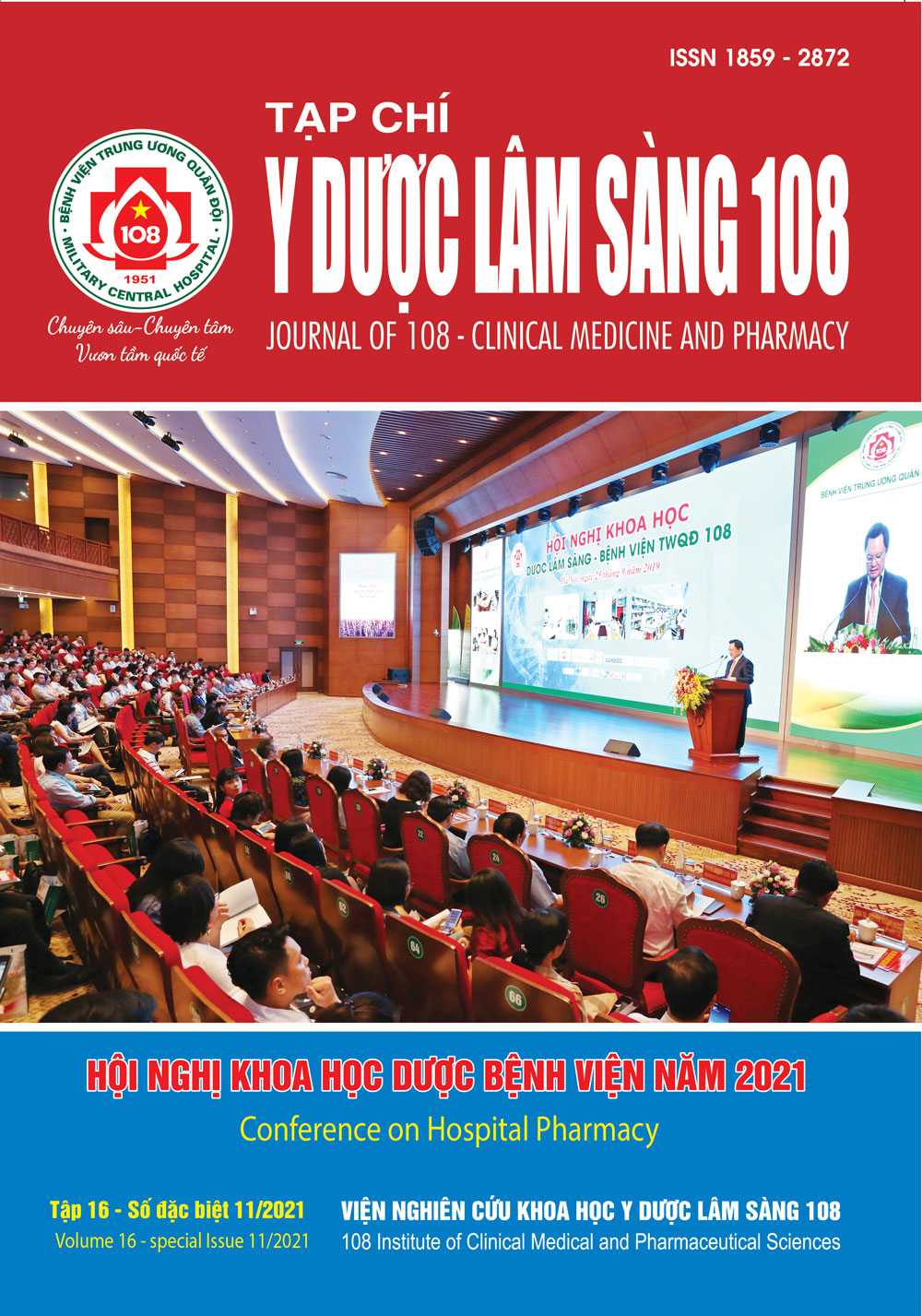Pharmacists’ counseling activities on using oral anticoagulants for outpatients at Nguyen Tri Phuong Hospital
Main Article Content
Keywords
Abstract
Objective: To evaluate the effectiveness of pharmacists' counseling on knowledge and satisfaction of patients using oral anticoagulant (OAC). Subject and method: Outpatients at Nguyen Tri Phuong Hospital from October 1, 2020 to March 3, 2021 who use OAC for at least 1 month are directly consulted about diseases and drugs by clinical pharmacists. Information collected by interviewing before and after face-to-face counseling and re-evaluating after 1 month by phone call. OAC knowledge is assessed by the AKT (Anticoagulation Knowledge Tool) questionnaire with a maximum score of 100%. Result: There were 139 patients who received initial face-to-face consultation and 123 patients who were interviewed by phone after 1 month. The number of patients indicated to use acenocoumarol was less than the DOAC group, 28.5% and 71.5%, respectively. The majority of patients taking OAC were associated with atrial fibrillation and flutter (85.4%), with comorbidities associated with hypertension (71.5%). Knowledge score improved from 25.0 ± 22.7% to 92.0 ± 10.0% (p<0.001) in the DOAC group and from 20.9 ± 11.3% to 80.5 ± 15.3% (p<0.001) in the acenocoumarol group after one month. Non-adherent patients decreased from 10.57% to 1.63% (p=0.01). The mean PDC values before and after counseling were 0.89 ± 0.07 and 0.91 ± 0.07, respectively (p<0.01). After being consulted, 81.3% of patients stated that counseling on OAC use was necessary, 72.4% of patients said that they were comfortable and confident in using OAC after being counseled. Conclusion: OAC drug use counseling by clinical pharmacists is necessary in outpatients to improve knowledge and confidence in drug use which is predictive to contribute to improving efficacy and safety in treatment.
Article Details
References
2. Phạm Hồng Thắm và cộng sự (2020) Đánh giá tư vấn của dược sĩ trong sử dụng thuốc kháng đông. Bệnh viện Nhân dân Gia Định.
3. Blue Cross Blue Shield of Michigan and Blue Care Network (2020) Michigan anticoagulation quality improvement initiative. Anticoagulation desktop reference. Version 2.3.
4. Martinez BK et al (2018) Effectiveness and safety of apixaban, dabigatran, and rivaroxaban versus warfarin in frail patients with nonvalvular atrial fibrillation. J Am Heart Assoc 7(8): 008643.
5. Metaxas C et al (2020) Patient knowledge about oral anticoagulation therapy assessed during an intermediate medication review in swiss community pharmacies. Pharmacy 8(2): 54.
6. Michigan Anticoagulation Quality Improvement Initiative - MAQI2 (2015) Anticoagulation toolkit -a consortium-developed quick reference for anticoagulation. Reviewed/updated on 2/1/15. Version 1.2.
7. Obamiro KO et al (2016) Development and validation of an oral anticoagulation knowledge tool (AKT). PLoS One 11(6): 0158071.
8. Rutherford OW et al (2020) Comparison of dabigatran, rivaroxaban, and apixaban for effectiveness and safety in atrial fibrillation: a nationwide cohort study. Eur Heart J Cardiovasc Pharmacother 6(2): 75-85.
9. Thrombophilia and Anticoagulation Clinic, Minneapolis Heart Institute®, Abbott Northwestern Hospital (2016) Direct Oral Anticoagulants (DOACs) Guide.
10. Wang Y et al (2014) Knowledge, satisfaction, and concerns regarding warfarin therapy and their association with warfarin adherence and anticoagulation control. Thromb Res 133(4): 550-554.
 ISSN: 1859 - 2872
ISSN: 1859 - 2872
